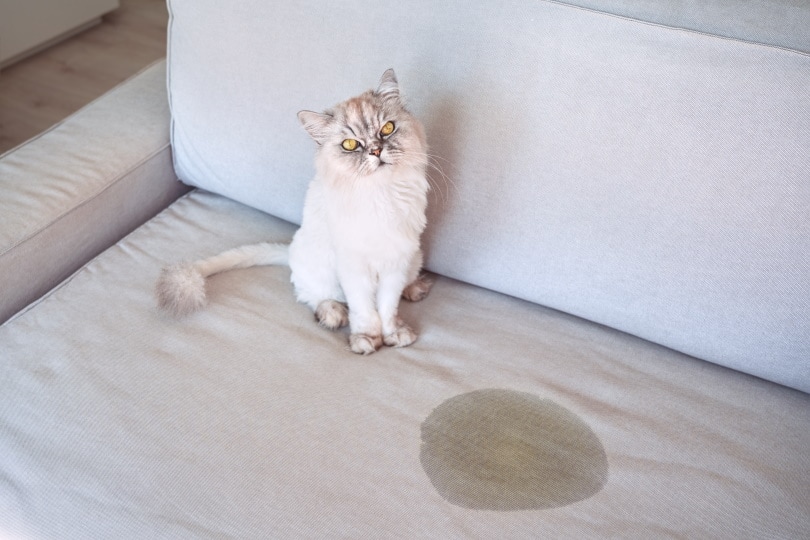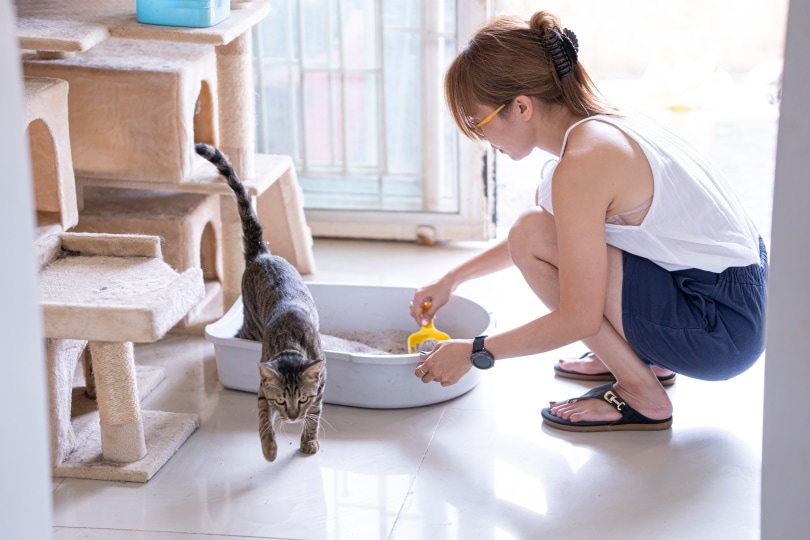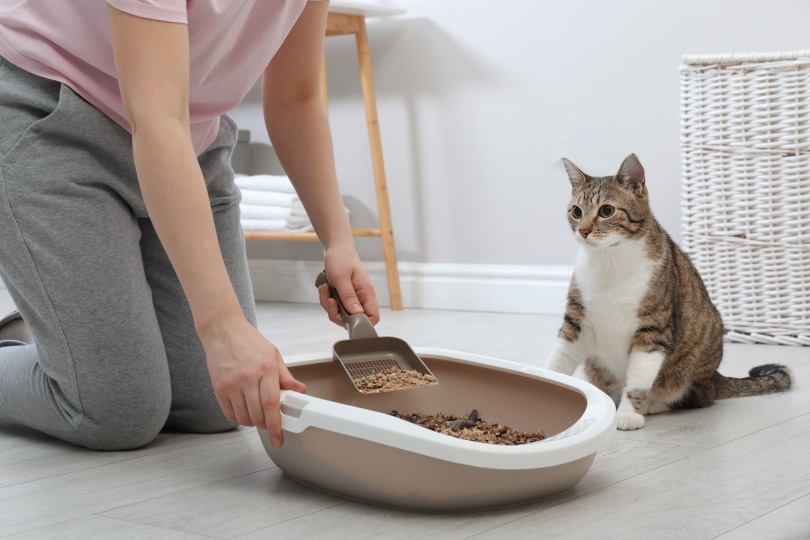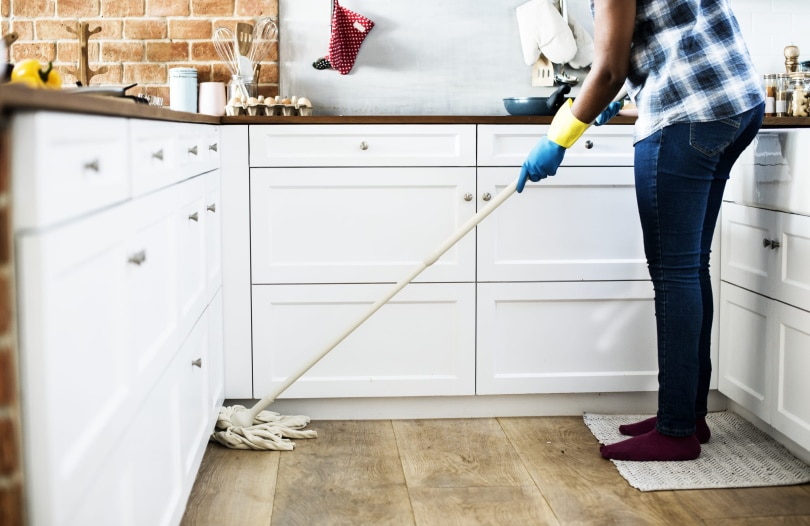How to Get Rid of Cat Pee Smell: 6 Practical Options
-
Chris Dinesen Rogers
- Last updated:

Imagine sitting on your couch watching TV. Suddenly, you notice it: the unmistakable stench of cat urine. It’s essential to act quickly. That’ll give you the best chance of getting rid of the odor completely. Felines live by their sense of smell. It’s how they communicate with each other and mark their territories. Some research1 even suggests they have a keener sense than dogs.
That makes cleaning the urine stain critical for putting the brakes on a potential problem before it becomes a habit. This article goes over six options for getting rid of the smell of cat pee.
Before You Start
We recommend using products specifically for this purpose. Cat urine is highly concentrated, which is why it smells so bad. It’s also acidic because your kitty is primarily a meat-eater. That makes your choice of a cleaning method vital. The last thing you want to do is compound the problem by using ammonia or bleach. Save those cleaners for the wash.
The 6 Ways to Get Rid of Cat Pee Smell
1. Go to the Source
Your cat’s litter box is probably the most likely source of the problem. We suggest tossing out the old litter and cleaning out the box. You can use warm, soapy water to get the job done. Avoid using products with a strong scent. Remember how sensitive felines are to smell. Let it dry completely and fill it with new litter. Liners can make it easier to do next time. We recommend doing it every two weeks.

2. Establish a Daily Cleaning Routine
Prevention is usually the best way to solve problems. That means daily cleaning with a cat urine issue. That’s particularly true if your pet is going outside of the box. Remember that your kitty doesn’t like a smelly litter box any more than you do. After scooping it out, sprinkle some baking soda on the litter and add more to the box. The powder will help neutralize odors to contain them.
3. Add More Litter to the Box
Luckily, manufacturers have continued to develop new products that make this unpleasant task easier while solving odor problems. Simply keeping the box filled with 3–4 inches of litter can support the ammonia-blocking properties of some brands that do a better job of reducing unpleasant smells.

4. Use the Right Product for the Surface
Where your cat is urinating affects how you approach the task and get rid of the odor. You can use a foaming shampoo for upholstery and carpeting. These products work best if you use them right away to prevent staining and odor absorption by the material. Blot the spot dry, wearing latex gloves. Then, apply the product and follow the manufacturer’s directions.
Powders are effective if your cat has urinated on a tile, linoleum, or concrete surface. They do double-duty by absorbing the liquid to make your job less unpleasant. Pet products can help prevent recurrences by removing the smells but also with repellents that are effective deterrents.
5. Wash Any Linen or Other Materials Your Cat Used
You could save your kitty’s bed or other material if your kitty urinated on something else. Toss the linen in the wash with a cup of baking soda, running it on a cold water cycle. Hot water will make the odor more pungent and perhaps fix it into the material. We suggest hanging the laundry outside to dry if possible. If you still smell it, rinse and repeat.

6. Locate the Odor Source
Unfortunately, it’s not always easy to find where the problem lies, especially if there’s more than one place to inspect. Luckily, you don’t have to go around smelling every piece of furniture in your home. Instead, you can use a UV flashlight to identify the trouble spots quickly by illuminating the urine crystals. Then, you can use one of the previous methods to get rid of the odor.
How to Correct This Behavior
Of course, getting rid of the odor is only part of the solution. You also must make sure it doesn’t happen again. Several things can cause inappropriate urination. Sometimes, the cause is behavioral. After all, felines spray to mark their territories. Some pets may urinate outside the box if something has changed in their world. It can be something as minor as changing litter or rearranging furniture.
Proper cleaning is on the top of the list of the things you must do to prevent a repeat performance. Using repellents in favorite spots can also get things under control. Some pet owners have had good luck using pheromone diffusers or sprays. They work by replicating scents that your cat associates with pleasant experiences that can help calm your pet. They’re often effective if a change triggers them.
This behavior can also have physical causes, such as urinary infections or stones. If you notice other symptoms like difficulty urinating or blood spots on the floor, make an appointment with your pet’s veterinarian. A dietary change can often correct the issue.

Conclusion
Few things are more unpleasant than the smell of cat urine. It’s even worse if inappropriate urination has become a habit. That’s why it’s essential to trust your nose and act promptly. The longer you wait, the greater the chances that you’ll have difficulty removing the odor entirely. Remember that cats prefer the status quo to change. Minimizing stress can have a profound impact on preventing a problem.
- See Also: 9 Best Carpet Cleaners for Cat Urine
Featured Image Credit: Creative Cat Studio, Shutterstock
Contents
